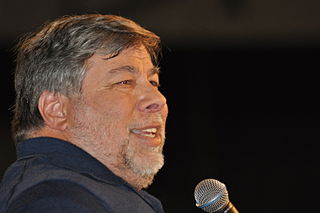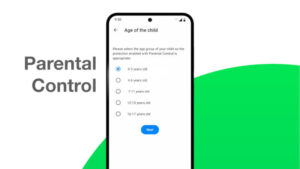FOSS Week in Review
Canadians spy at airports
The more we see of the Snowden revelations the more we wonder, when did the English speaking world become a police state?
The latest news was reported January 30th by the Canadian Broadcasting Corporation (CBC), from which we learned that all the electronics eavesdropping hasn’t been being conducted solely by the U.S. and the Brits. The Canadians have had their hand in it too.
It seems that Communications Security Establishment Canada (CSEC), a Canadian spy agency, has been using the free Wi-Fi at “a major Canadian airport” to track wireless devices, which presumably would include laptops as well as phones and tablets. The surveillance would continue for days after visitors passed through the airport.
According to the CBC, this is a clear violation of Canadian law.
“Ronald Deibert told CBC News: ‘I can’t see any circumstance in which this would not be unlawful, under current Canadian law, under our Charter, under CSEC’s mandates.’
“The spy agency is supposed to be collecting primarily foreign intelligence by intercepting overseas phone and internet traffic, and is prohibited by law from targeting Canadians or anyone in Canada without a judicial warrant.…
“But security experts who have been apprised of the document point out the airline passengers in a Canadian airport were clearly in Canada.”
Ronald Deibert, author of the book “Black Code: Inside the Battle for Cyberspace,” heads Citizen Lab, a cyber research program at the University of Toronto’s Munk School of Global Affairs.
According to the Snowden document, after passing through the Canadian airport the Canadian agency tracked the compromised wireless devices for more than a week as they showed up at other Wi-Fi locations across Canada and at U.S. airports.
“That included people visiting other airports, hotels, coffee shops and restaurants, libraries, ground transportation hubs, and any number of places among the literally thousands with public wireless internet access.
“The document shows CSEC had so much data it could even track the travellers back in time through the days leading up to their arrival at the airport…”
Although spokespeople for Canada’s two largest airports, Vancouver and Toronto, deny any knowledge of such a program being conducted at their facilities, the U.S. company Boingo is the largest supplier of Wi-Fi services at Canadian airports.
According to the Snowden leak, this activity was a joint effort that involved the NSA.
Also this week, some of the big Internet players were finally allowed to release some data on the depth of spying they’ve been ordered to do for the NSA–the key word being “some,” which means “not much.”
From a story posted Monday by Ars Technica:
Here’s the most relevant and recent data published today, from January to June of 2013:
Microsoft provided content on somewhere between 15,000-15,999 accounts.
Google provided content on somewhere between 9,000-9,999 accounts.
Facebook provided content on somewhere between 5,000-5,999 accounts.
Yahoo provided content on somewhere between 30,000-30,999 accounts.
LinkedIn provided content on somewhere between 0-249 accounts, in response to both National Security Letters (NSLs) and FISA requests.
The companies have more data available through the linked sites. Google provides data going back to 2009, and Microsoft provides data going back to 2011.
In more Snowden news, we learned on Wednesday from PCWorld that the Brit spy agency GCHQ has been engaging in a game of tit-for-tat with the hacker groups Anonymous and LulzSec. Evidently they’ve used DDOS attacks and other techniques to an attempt to disrupt the organizations activities. They’ve also managed to do a bit of infiltrating.
“In another chat log, the agent is contacted by a user named GZero who says the first hacker works with him and who also expresses interest in buying traffic for use with an exploit pack.
“JTRIG’s reporting on GZero led to his identification and arrest, one of the slides says. Edward Pearson, a 23 year old from York, England, was identified by law enforcement as GZero. He was sentenced in 2012 to two years in prison for using Trojan programs like Zeus and SpyEye to steal credit card details and PayPal credentials.”
Meanwhile, over 4,000 groups and websites, including FOSS Force, have already signed-up to take part in The Day We Fight Back, an international day of protest against the NSA that will take place on Tuesday.
A temporary fix for Net Neutrality?
It appears as if Senator Edward Markey (D-MA) and Representative Henry Waxman (D-CA) are riding to the rescue for a fair and equal Internet, at least until the FCC can get its ducks lined-up. Each has introduced bills that will prevent ISPs from putting some websites in the fast lane while routing others to an un-maintained dirt road. According to The Verge, this is seen as necessary given the mixed messages that have been coming from FCC Chairman Tom Wheeler.
“One senior hill staffer told The Verge that measure would ‘box Wheeler in on setting up a new system,’ effectively forcing the chairman to support non-discrimination or openly oppose his own party’s house leadership.”
Public Knowledge, an Internet neutrality advocate, has given the bill a thumbs-up.
It’s a new day for Torvalds and Nvidia
Speaking of thumbs-up, that’s what Linus Torvalds is offering graphics chip maker Nvidia after famously offering the company his middle finger last June, as we learn from CNET:
“‘This time I’m raising a thumb for Nvidia. Good times,’ Torvalds said Sunday night on Google+…”
This comes after Alexandre Courbot with Nvidia announced the contribution of some open source code to Nouveau, a project that’s been attempting to reverse engineer Nvidia drivers.
“‘My email address might surprise some of you, so let me anticipate some questions you might have. Yes, this work is endorsed by Nvidia. Several others … have provided significant technical guidance and will continue their involvement,’ he [Courbot] said. ‘Let me also stress that although very exciting, this effort is still experimental, so I would like to make sure that nobody makes excessive expectations based on these few patches.'”
Evidently it sometimes pays off to shoot somebody the bird.
Wozniak says Apple should make Android iPhone
They’re probably rolling their eyes over in Appleland over this…
Wired reported on Thursday that Apple co-founder Steve Wozniak is running around saying that his old company should issue a version of the iPhone running Android.
“‘There’s nothing that would keep Apple out of the Android market as a secondary phone market,’ said Wozniak–who, it should be noted, is no longer involved in the day-to-day workings of the company. “We could compete very well. People like the precious looks of stylings and manufacturing that we do in our product compared to the other Android offerings. We could play in two arenas at the same time.”

Bill Gates discovers a problem with Windows 8
You might have heard that with the arrival of a new CEO in Redmond, Bill Gates will begin taking a more active role at Microsoft. According to the New Yorker, his first day at his new job didn’t go too well. The problem? He tried to install Windows 8 on his computer.
“The installation hit a snag early on, sources said, when Mr. Gates repeatedly received an error message informing him that his PC ran into a problem that it could not handle and needed to restart.
“After failing to install the upgrade by lunchtime, Mr. Gates summoned the new Microsoft C.E.O. Satya Nadella, who attempted to help him with the installation, but with no success.”
In the end, Mr. Gates decided he’ll be happy using Windows 7 for a while longer.
Maybe now he’ll roll up his sleeves and do some serious coding. Of course, the last time he did that he came up with Vista.
Editor’s note: Evidently this last piece didn’t really happen and the New Yorker story is satire. Oops, bad on us. We should’ve known that by now Mr. Gates would have enough experience with Windows 8 to know it to be useless for getting any work done. We thought of merely deleting the item from the article, but decided as satire it perfectly illustrates the problems at Microsoft, so we’re leaving it up. We had a chuckle over it when we believed it really happened, and we’re still chuckling now–although now the joke is partly on us.
Until next time, may the FOSS be with you…

















The New Yorker piece is satire; it’s not real. The Borowitz Report, from which the bit about Gates was taken, consists of funny spins on the news. No where in the author’s commentary on the piece is there indication of awareness of this fact, leading me to conclude that he or she has been taken in by a funny. Why else would it be included in an otherwise informative column?
@Kerim we were taken in. Thanks for the head’s up.
Glad to have helped!
The hilarious thing about the New Yorker piece is how easy it is to believe. Diehard Microsoft fans have fallen for it on other sites. Deep down they know what a disaster Windows 8 is and that 8.1 is merely lipstick on a pig.